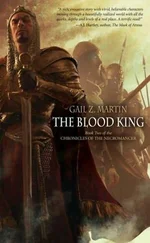Should I bear a grudge against him for what he deprived his children of? In my opinion I definitely should: men are responsible for their offspring, both parents bear equal responsibility, and so on and so forth, and nevertheless I don’t bear him a grudge.
When she was a little girl Hagar tried touchingly to attach me to Yoash. When he raised her to his shoulders she would kick and ask me to hold her from behind, and we would walk down the street like Siamese triplets; she would demand that I phone him now, why not now, and invite him over; she would ask why Yoash wasn’t married, say it would suit him to have a baby, and quiz me as to whether in my opinion he seemed “in love.”
When she grew older she became more explicit, and when she despaired of Yoash and his eccentricities, she began questioning me about others, especially Jeff. “How long has he been divorced already?”, “I think his daughters are really nice, it feels as if we’ve always known each other,” and finally: “If he’s such a good friend of yours, why can’t he be your boyfriend?” If Tami had asked me the same question I would have replied that I’d tried, “for my sins I’ve tried, and I really can’t recommend it, six out of ten on the Noa Weber scale,” but small daughters are not girlfriends, and therefore I replied: “It’s impossible and it will never happen because he’s my boss.” “So what if he’s your boss?”
“If you go to bed with your boss your children are born with a squint.” Hagar was not amused, to this day she tends to take everything literally and is offended when she discovers her mistake.
This year Alek became the father of a baby girl in Moscow. Dasha, or Dashka, is her name and I know nothing about her mother. Somehow I understood that the pregnancy was unplanned, by him at any rate, and that he sees her from time to time and also supports her financially, but Alek, always the gentleman, did not go into details. Was I upset? And how I was upset, mainly, in some strange way, because the baby was a girl. Ute is big, blonde and ample, I am small, short and relatively dark. Ute is German, European, and I am the Middle Eastern minx. The German woman has sons, and the Israeli minx gave birth to a daughter. Something in this division of roles helped me to separate between the worlds, to separate myself from the other woman, and to remove the sting of jealousy. Ute was one thing, I was another, and whatever there was between him and her did not touch me. And now he had a daughter, like Hagar, with twenty tiny nails, and another young woman who might be like me. How was she like me? And how was she with him? And how was he with her?
We were on the way from Sheremetyevo, on the Moscow Ring Road encircling the city. It was a quarter past eight in the morning, and outside the taxi window was a gray fog so thick that you could hardly see the white of the snow. It was my seventh visit, and when I stood in line for customs I noticed how the airport had changed since the first time I came to him, in 1993.
I was all aroused in anticipation of meeting Alek, but without the fear crawling under my skin that had diluted the arousal of the first visits. No shady character tried to take my bags from me, nobody offered the devil knows what services, and the airport employees no longer looked like gray corpses on leave. In another year or two maybe they would begin to smile and even to wish the passengers a “nice day.” What Did Mrs. Neuman Know? had already been sent to the printers, and it occurred to me that perhaps in my next book I should bring Nira here, in winter. I would dress her in a black fur like the one displayed in the shop window upstairs. The flat-faced passport controller knew no English, but she took my visa without making me wait nervously, and without fixing her long narrow eyes on me or the computer screen, she stamped it with a hammer blow. Over the loudspeaker system, too, there was not a word to be heard in English, and when I stood in the next line I suddenly felt goose bumps at the sound of the names: “Irkutsk … vosem tridzat . Habarovsk … vosem tridzat pyat . Tallinn … Samarkand … Vladivostok.…” Expanses of cold, imaginary forms of existence, all poured into the airport, and in this heart-rending vastness, present and tangible and standing patiently in line, there was nothing that it made sense to cling to except for the one waiting for me with a flower in his hand beyond the next set of doors.
“They say that at my age a child makes you younger, but what can I tell you, Noia, it’s not exactly like that.” The taxi driver had a slender neck, suddenly I wondered how the coarse wool of his sweater didn’t drive him crazy with its touch, and when he opened the window to move the stuck windshield wiper, he did it without gloves. I had gloves, but Alek didn’t, and when he wrapped my hands in both of his, hands no longer young, I was defeated again by the old rebellious helplessness; the helplessness that told me that in all the infinite expanses, in all the infinity confronting me, there was no point in anything, anything except for this. What could I say to him? “Congratulations”? “You’re a maniac”? What could I ask? “Is she like me? Does she love you in the same way?”
“Tell me about Borya,” I said. “What’s he up to? How is he?” Alek leaned back and took out cigarettes for both of us. “Nobody can talk to Borya any more he’s become such pravednik … kind of saint. And his new woman, complete svyatosha , with her it’s even worse. You know how she answers telephone? You don’t know, you can’t even guess. The handmaiden of God.” “Hello, this is the handmaiden of God?” “Exactly. Even my mother, who knew her mother when she was a baby, even she can’t stand it.” “So Borya doesn’t drink any more?” I asked, and I nestled in his arm, happy and relaxed. “Why not? He drinks all right, but drinking with saints, you know, isn’t such a pleasure.” And I laughed heartily and felt great love, for both of us.
ONCE I IMAGINED
Once I imagined telling everything to Miriam, to her and nobody else. Perhaps she would have pitied me: Look how he took advantage of your love, you wasted the best years of your life on him and what did you get out of it, tell me? Perhaps she would have said: I felt that there was something wrong in your life, but I didn’t want to poke my nose in. Only when Hagar changed her name did Miriam find out that I had been and still was an officially married woman, and my declared indifference to the formalities of the situation shocked her deeply. In her affection for me she had surmised that I had been done some injustice that I didn’t want to talk about, and while she was wrong, of course, regarding the injustice, she was right in assuming that I couldn’t possibly be truly indifferent to my legal position.
Miriam might have been angry with me: How could he lead you astray like that and how could you let him — she would certainly have been a little angry — but at least she would not have provided me with the telephone number of “an excellent psychologist.” For some reason it seems to me that Miriam, more than anyone else, is capable of thinking of love as one of the afflictions of fate.
There was relief in the fantasy of confession. The thought of baring the soul brings relief, but sometimes the price to be paid for that relief is the soul itself, whose life seems to demand darkness.
As opposed to Miriam, I never for a moment thought that Alek was taking advantage of me in any way whatsoever, and sometimes it even occurs to me that the one taking advantage is me.
Last February, when we were already in his apartment in Ordenka, after he had told me about Dasha and after he had made me rejoice from head to toe, I reminded him that on my previous visit he had promised to take me into the refurbished gilded white church three buildings away from us, but he was too lazy to get up. “I’ll put on some music for you instead, all night prayers, I’ll find the disc in a minute … there you are, with your permission.” And then, after all those years, like on Usha Street, like from the record he played me on Usha Street, rose the low male voices — slowly gathering, parting, like walking slowly in the dark, not actually growing stronger or louder, simply bearing stubborn, undefeated, sonorous testimony.
Читать дальше












